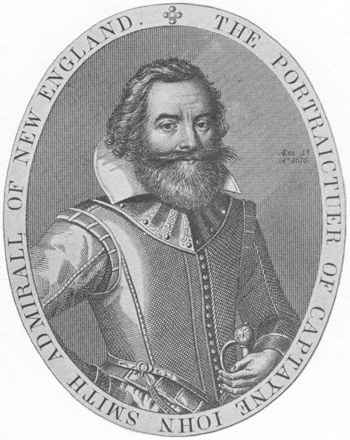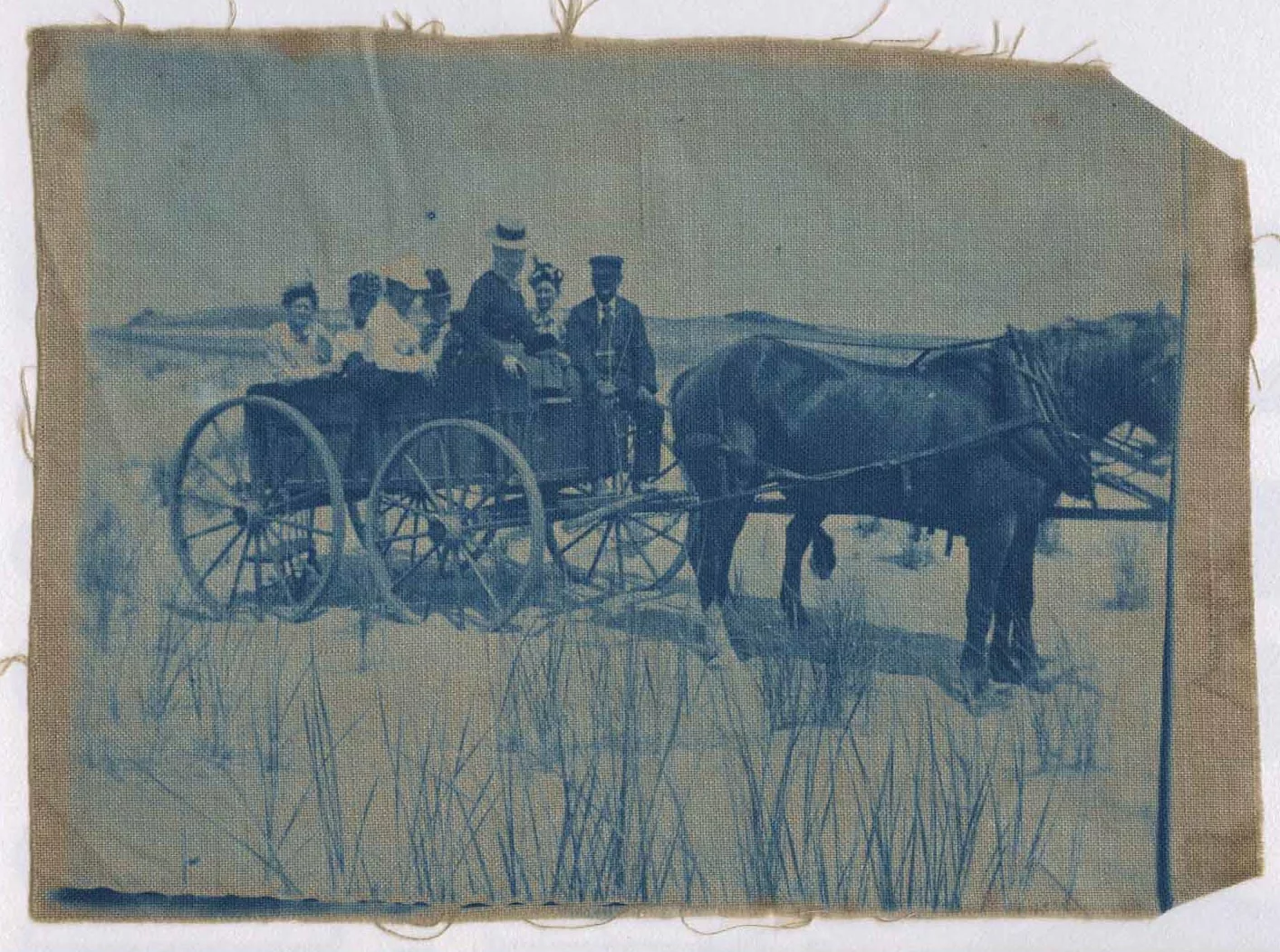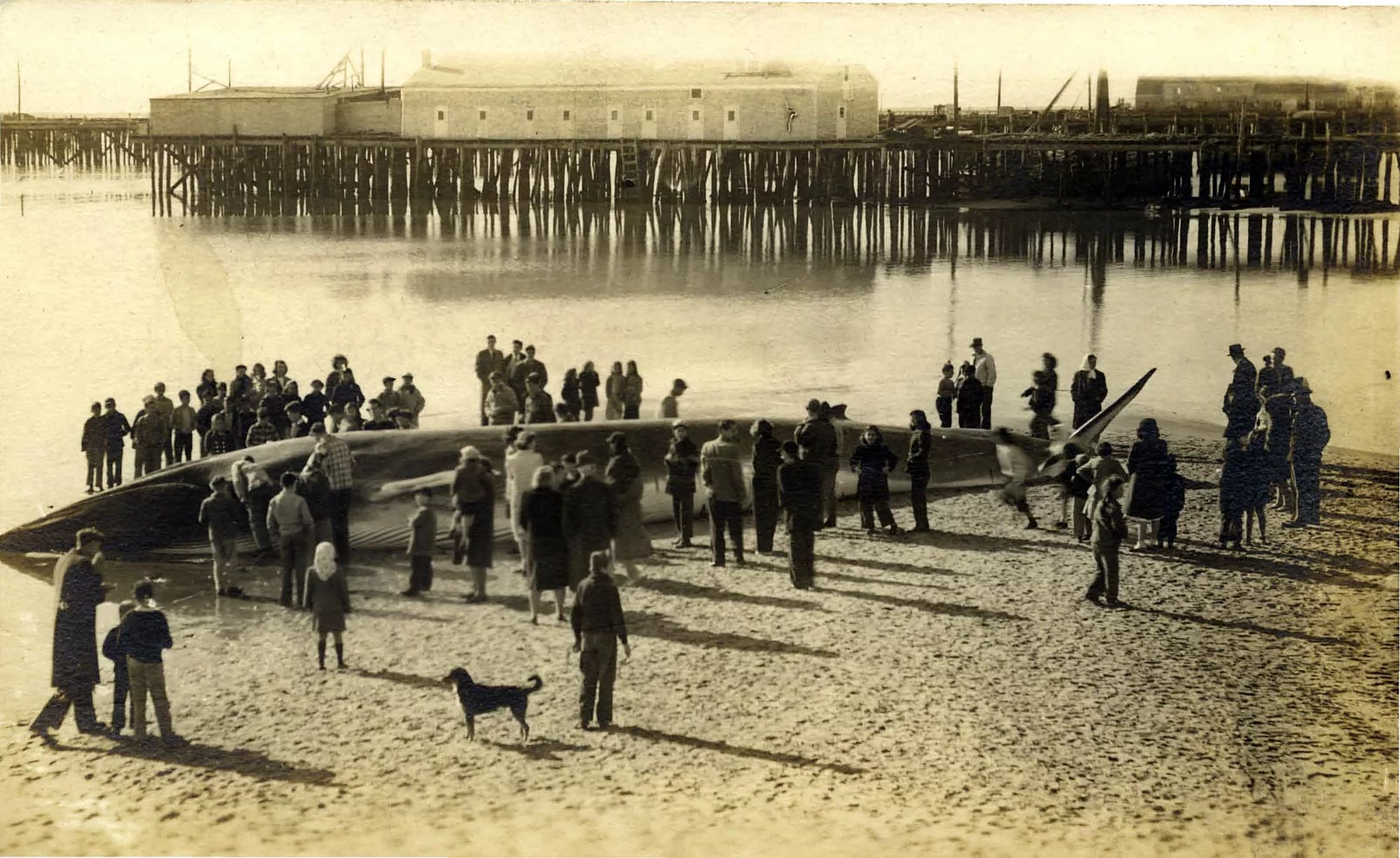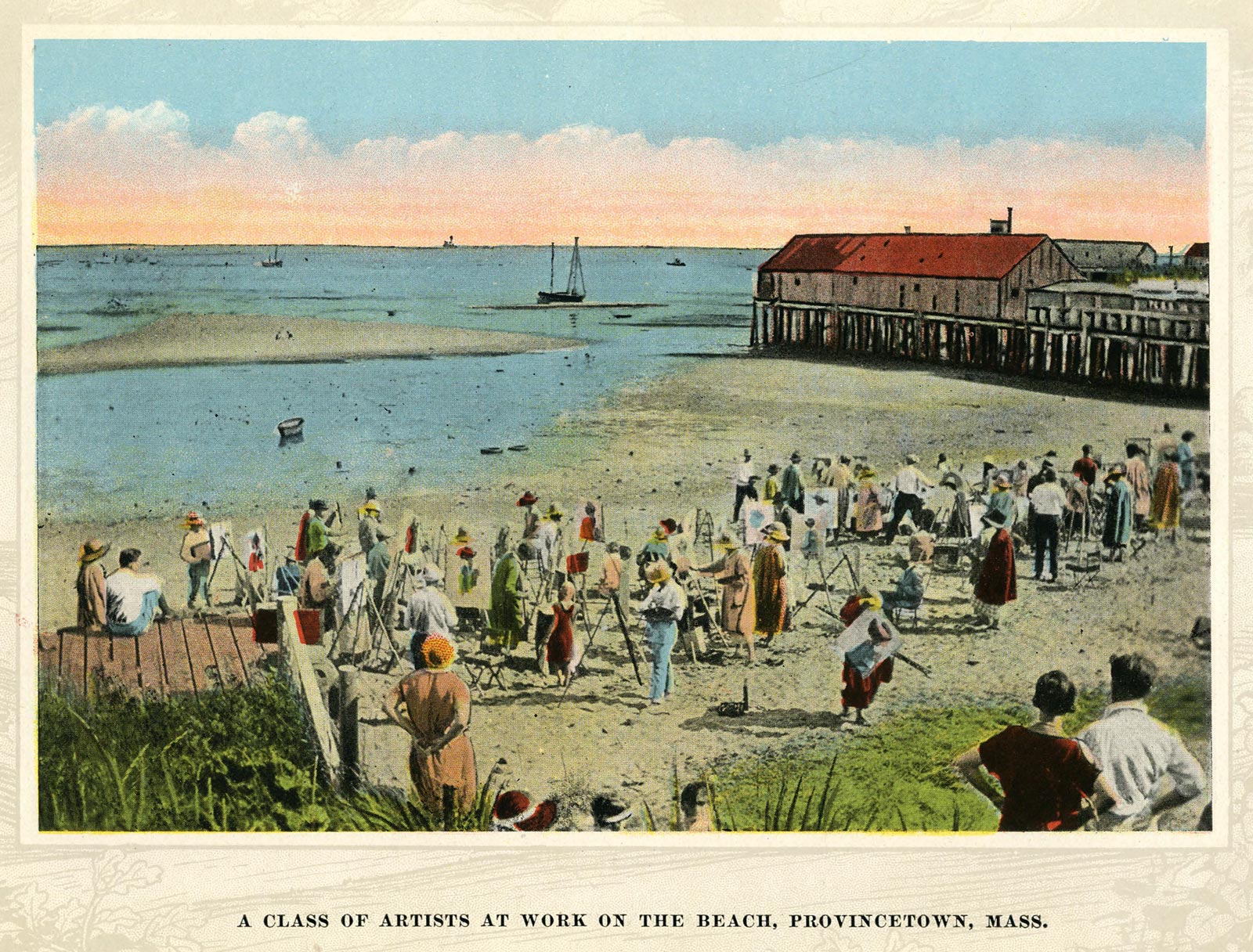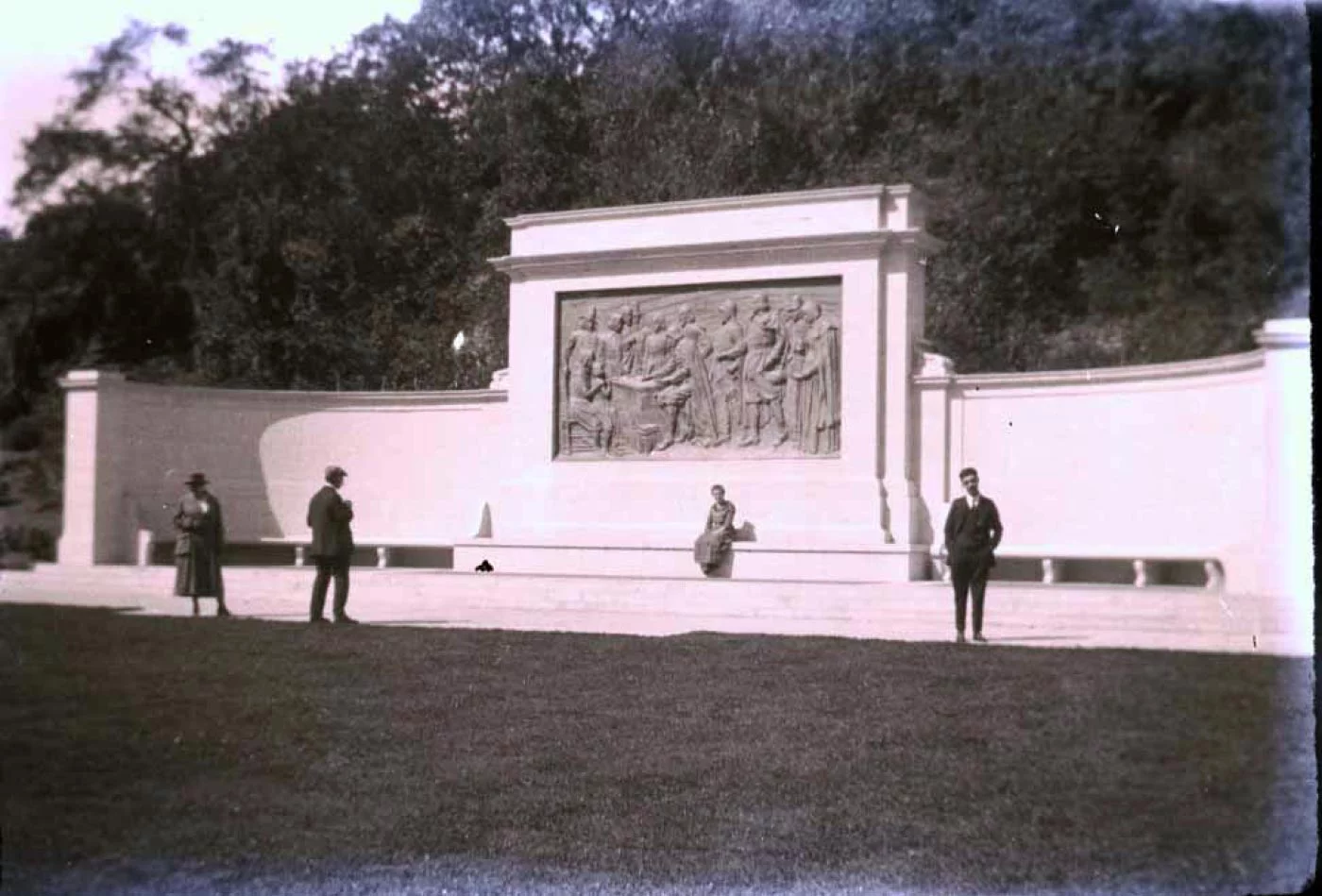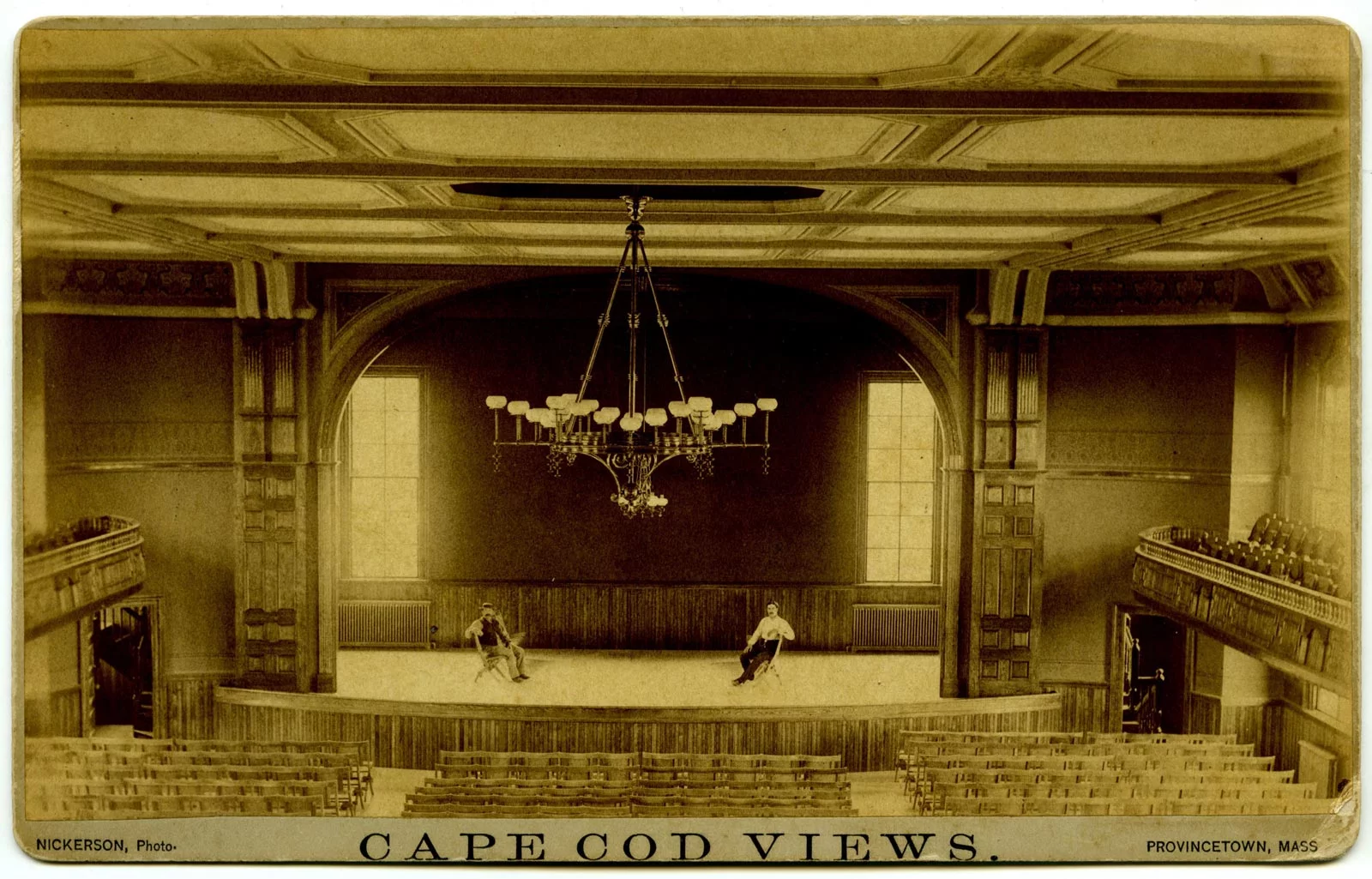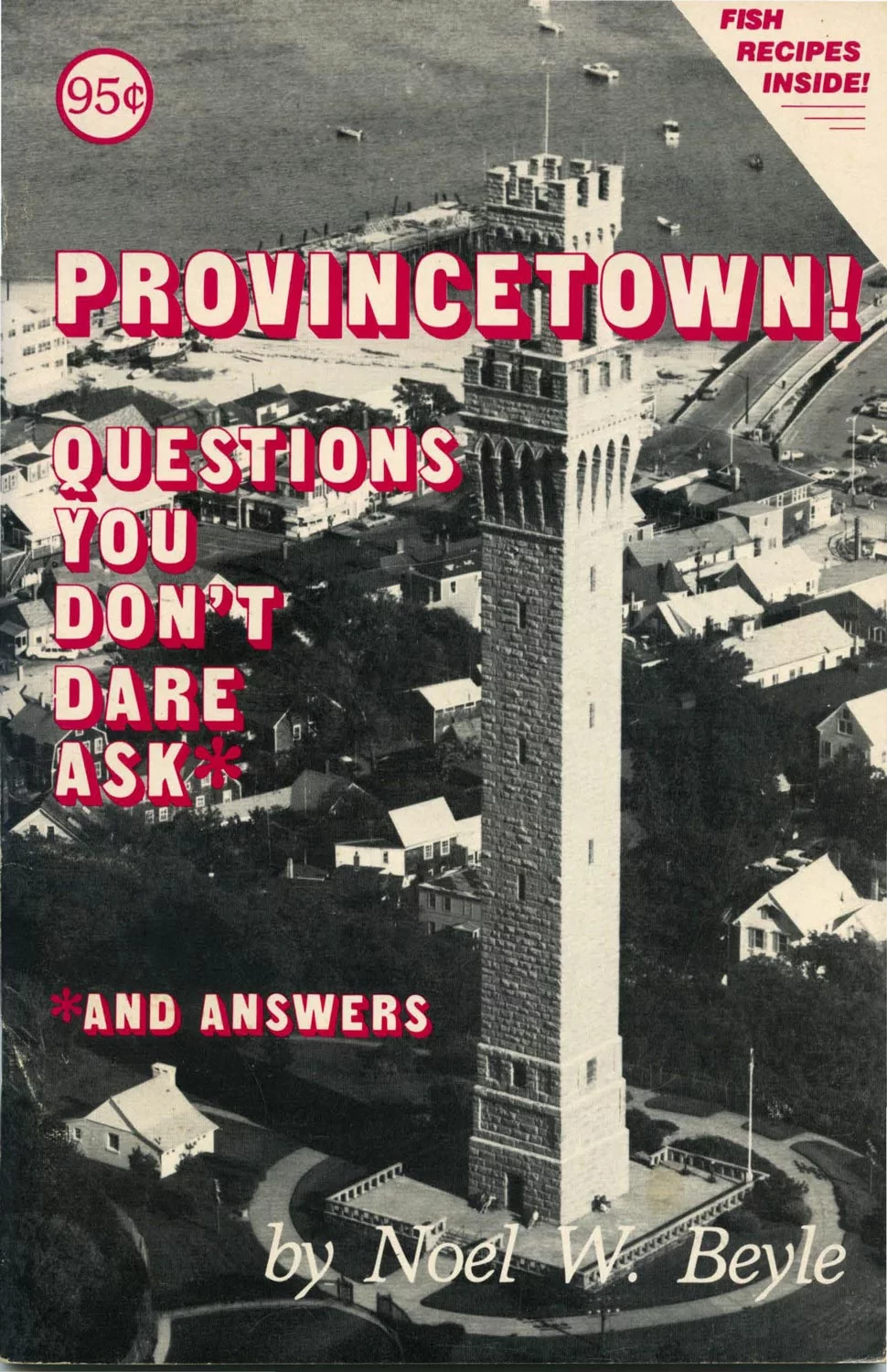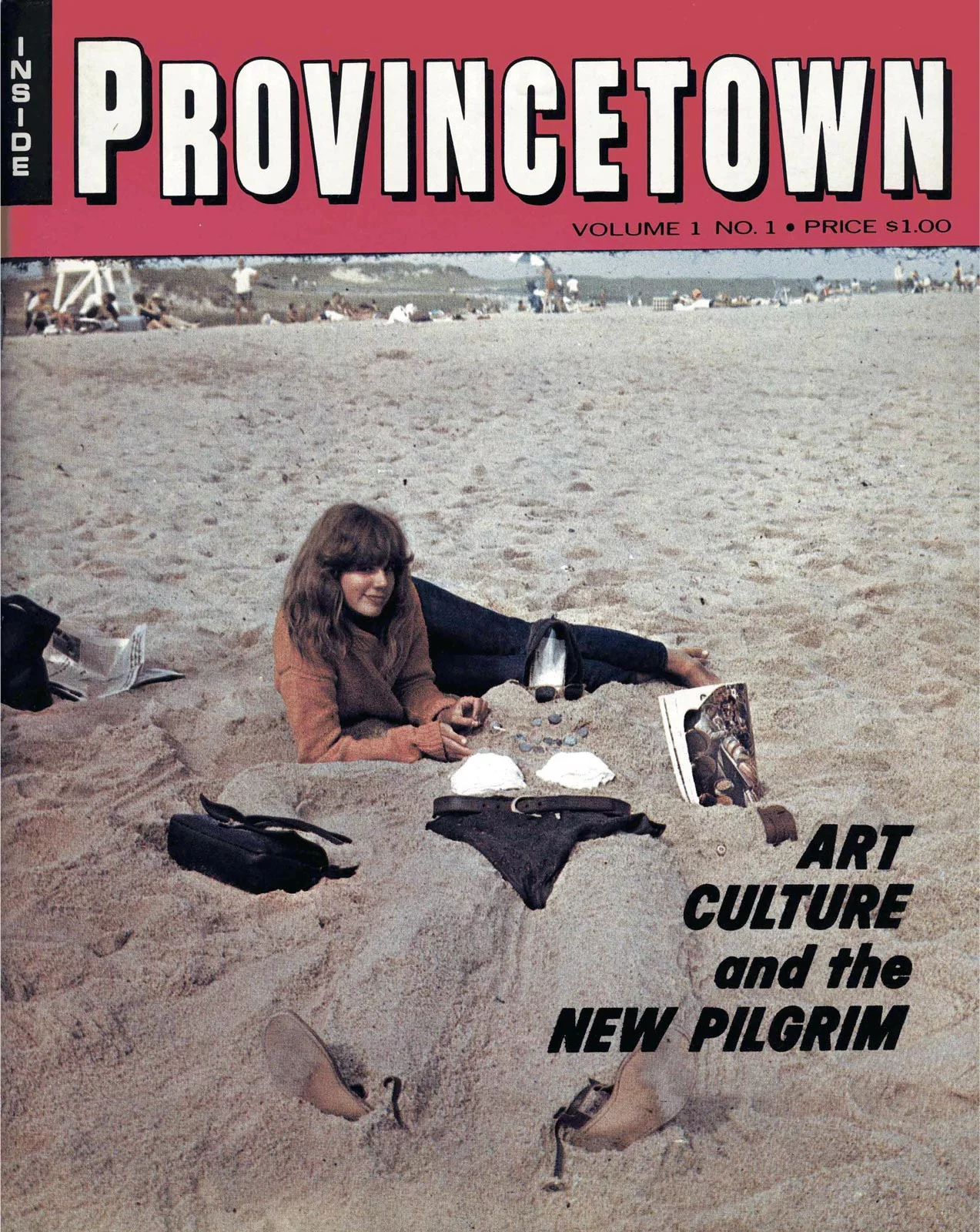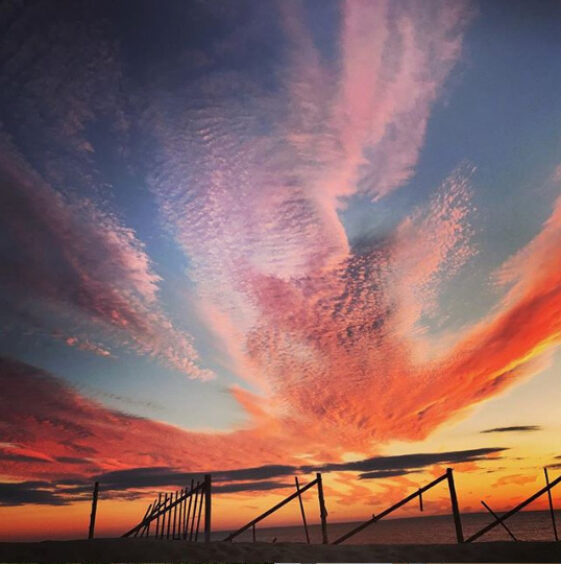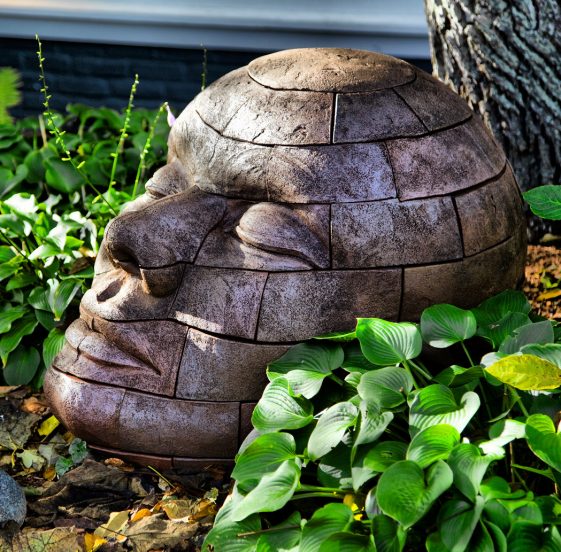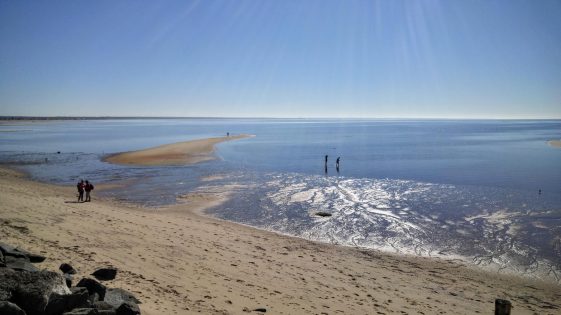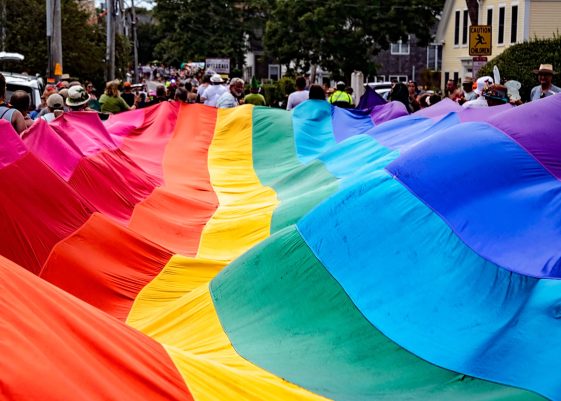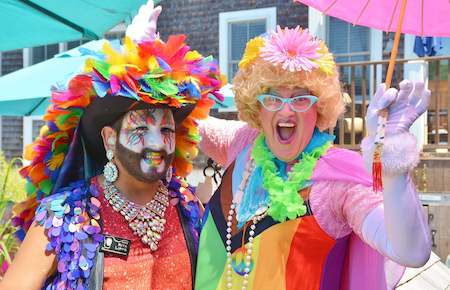History & Legacy
Over the years, an eclectic mix of fishermen, whalers, artists, writers, Portuguese immigrants, and members of the LGBTQ+ community have called it home.
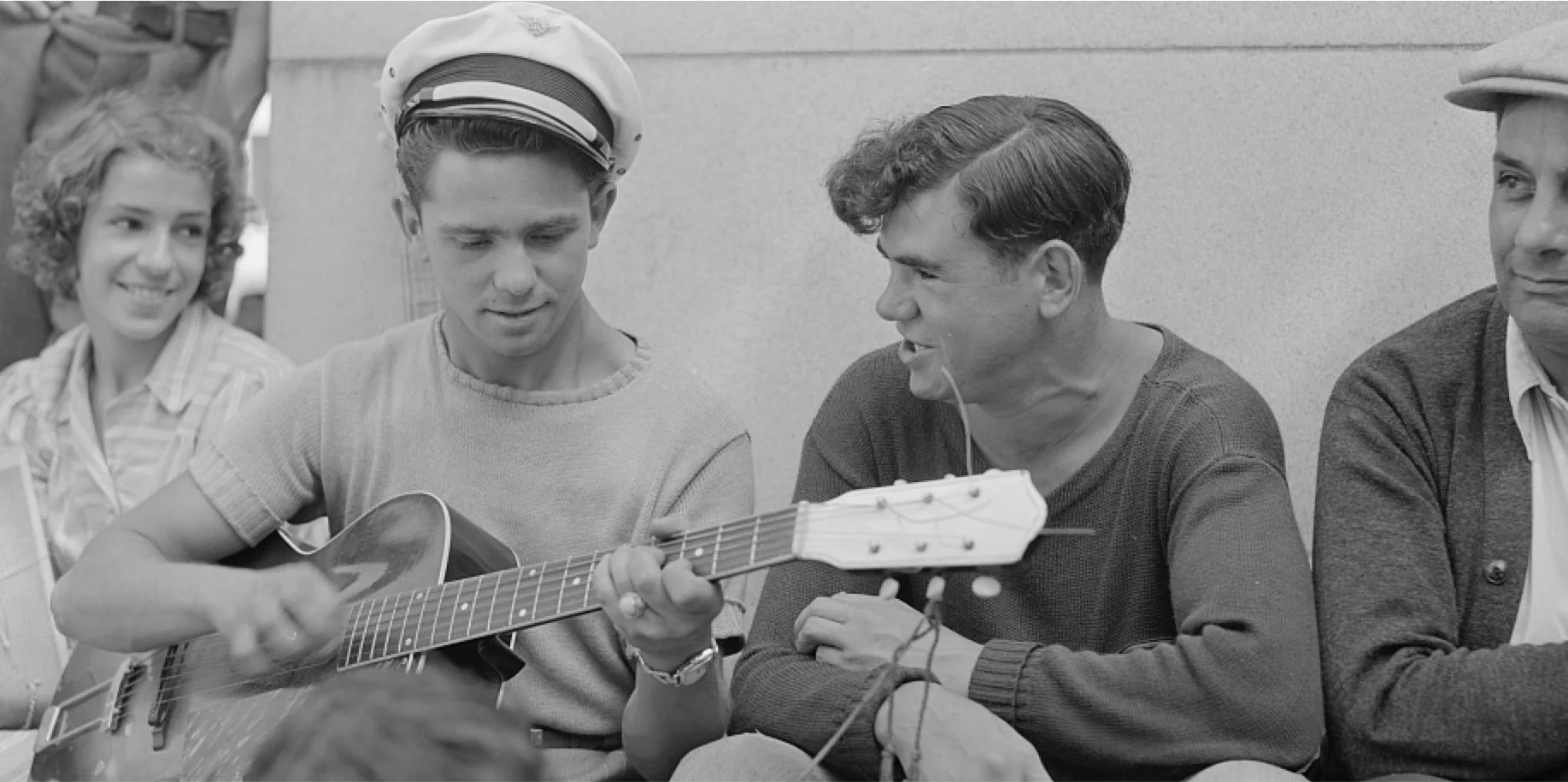
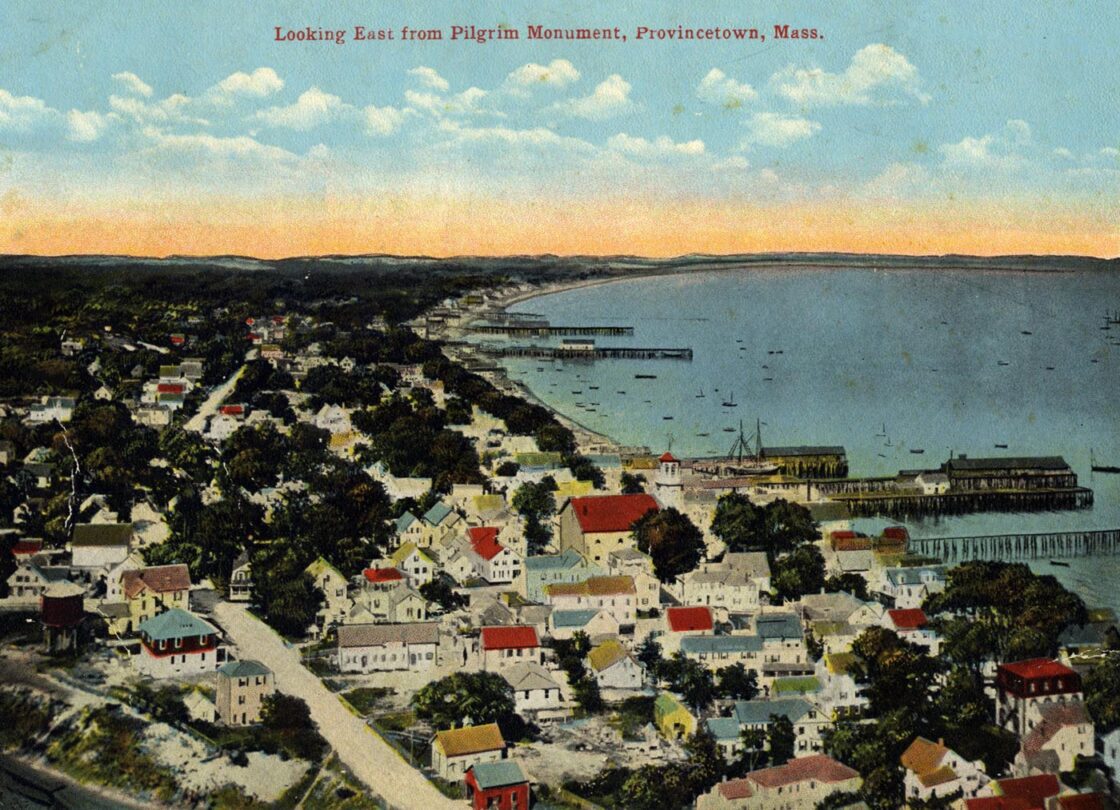
A view of Provincetown from a 1920s souvenir book.
“Provincetown is a community of tolerance. We have 400 years of history welcoming people.”
Provincetown History & Legacy
A Legacy of Pride
Provincetown has long been connected to a sense of freedom, from the Pilgrims’ first landing on its shores to the Town’s enduring appeal for gay and lesbian travelers. Over the years, an eclectic mix of fishermen, whalers, artists, writers, Portuguese immigrants, and members of the LGBTQ+ community have called it home. Today, seasoned visitors and newcomers alike are still drawn to this sandy tip of the cape for its beauty, its color, and its sheer flamboyance.

The Wampanoags & Nausets
600 to 1,000 years before the Pilgrims, Native Americans from the Wampanoag and Nauset tribes settled as hunter-gatherers and eventually agriculturists and fishermen in Provincetown.

Massasoit, Great Sachem of Wampanoags, by Cyrus E Dallin
Detroit Publishing Company Collection. Source
John Smith Visits
Captain John Smith, capping a long and adventurous career (fighting the Turks in Transylvania, upholding the English colony at Jamestown and famously encountering the Indian Princess Pocahontas), explored, collected fish and furs and created the charts that were used by the captain of the Mayflower in 1620. The charts show Cape Cod as Cape James, after King James I of England, Cape Cod Harbor (Provincetown Harbor) as Milford Haven, after a pleasant harbor in Wales, and Cape Cod Bay as Stuart’s Bay, after England’s ruling dynasty.
The Pilgrim's Arrival
When the Pilgrims on the Mayflower reached North America, they were first greeted by the sandy shores of Provincetown. The group had taken the difficult two-month journey across the Atlantic seeking religious freedom. Before they went ashore, men on the ship signed the Mayflower Compact, a governing document that would later serve as a model for the Founding Fathers. On land, the women cleaned their soiled clothing while the men explored the land, helped themselves to a stash of corn, and skirmished with the Pamet Native American tribe. The following month, the Pilgrims moved to Plymouth.
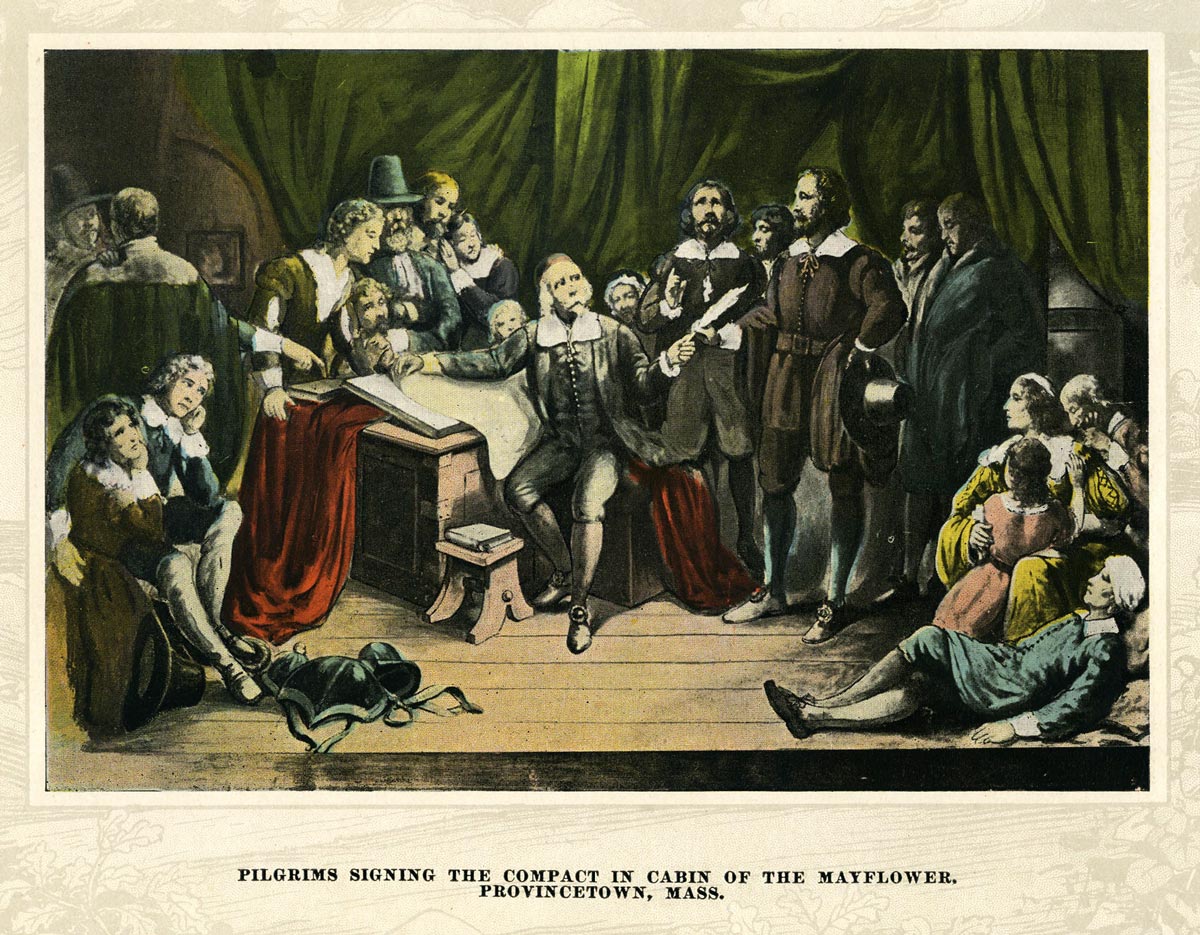
Pilgrims signing the Mayflower Compact before going ashore in Provincetown.
Portuguese Communities Leave Their Mark
Provincetown has a large Portuguese community, one with deep ties to the town’s fishing industry. The first Portuguese immigrants were sailors, and within decades, they’d come to dominate the fishing industry. The sailors were soon followed by Portuguese families, who brought their foods and strong ties to the Catholic Church with them. Today, Portuguese influence can be seen in the town’s bakeries and restaurants, and in the annual Provincetown Portuguese Festival and Blessing of the Fleet.
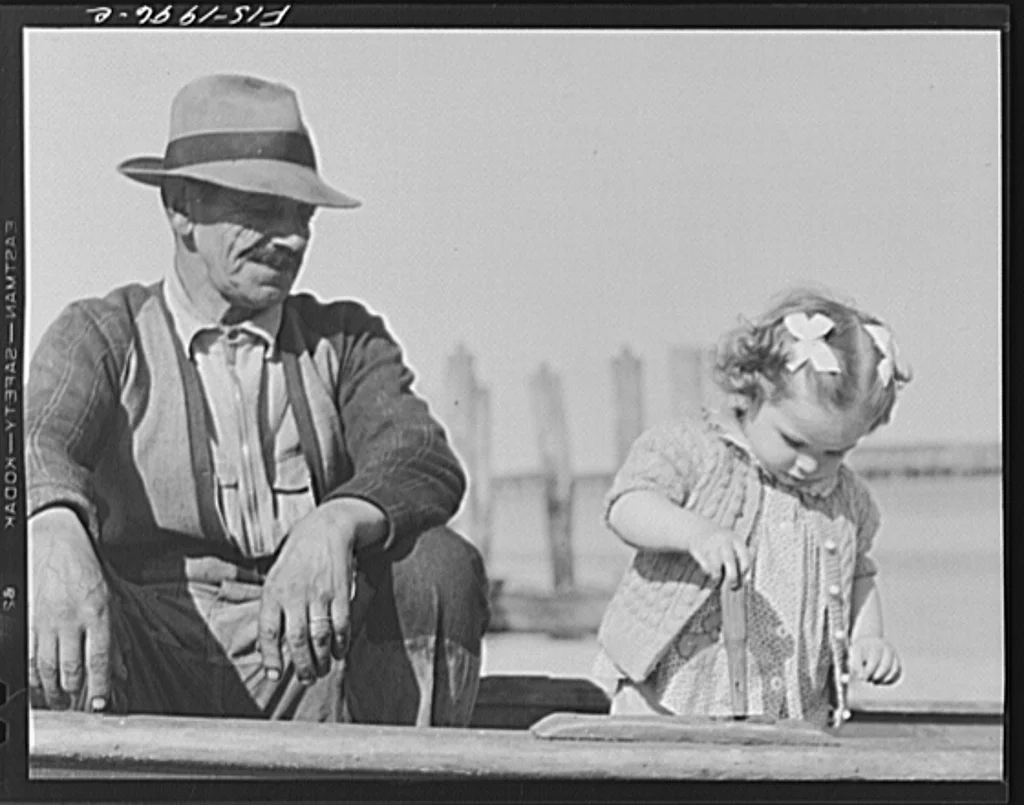
Collier, J., photographer. (1942) Provincetown, Massachusetts. Portuguese dory fisherman and his grandaughter. Barnstable County Massachusetts Provincetown Provincetown. United States, 1942. Apr. [Photograph] Retrieved from the Library of Congress, https://www.loc.gov/item/2017830524/.
An Artists' Haven
Provincetown’s history as one of the country’s largest art communities can be traced to 1899, the year Charles W. Hawthorne opened his Cape Cod School of Painting. Artists were quickly drawn to the area’s wind-swept dunes and enchanted by the Town’s wharves and sailing ships. By World War I, Provincetown’s reputation was well established, with painters, playwrights, and poets embracing the Town’s bohemian lifestyle. Among the famous inhabitants were the writer Norman Mailer, the playwright Eugene O’Neill, and the abstract expressionist Hans Hofmann, who also opened a summer school in Town.
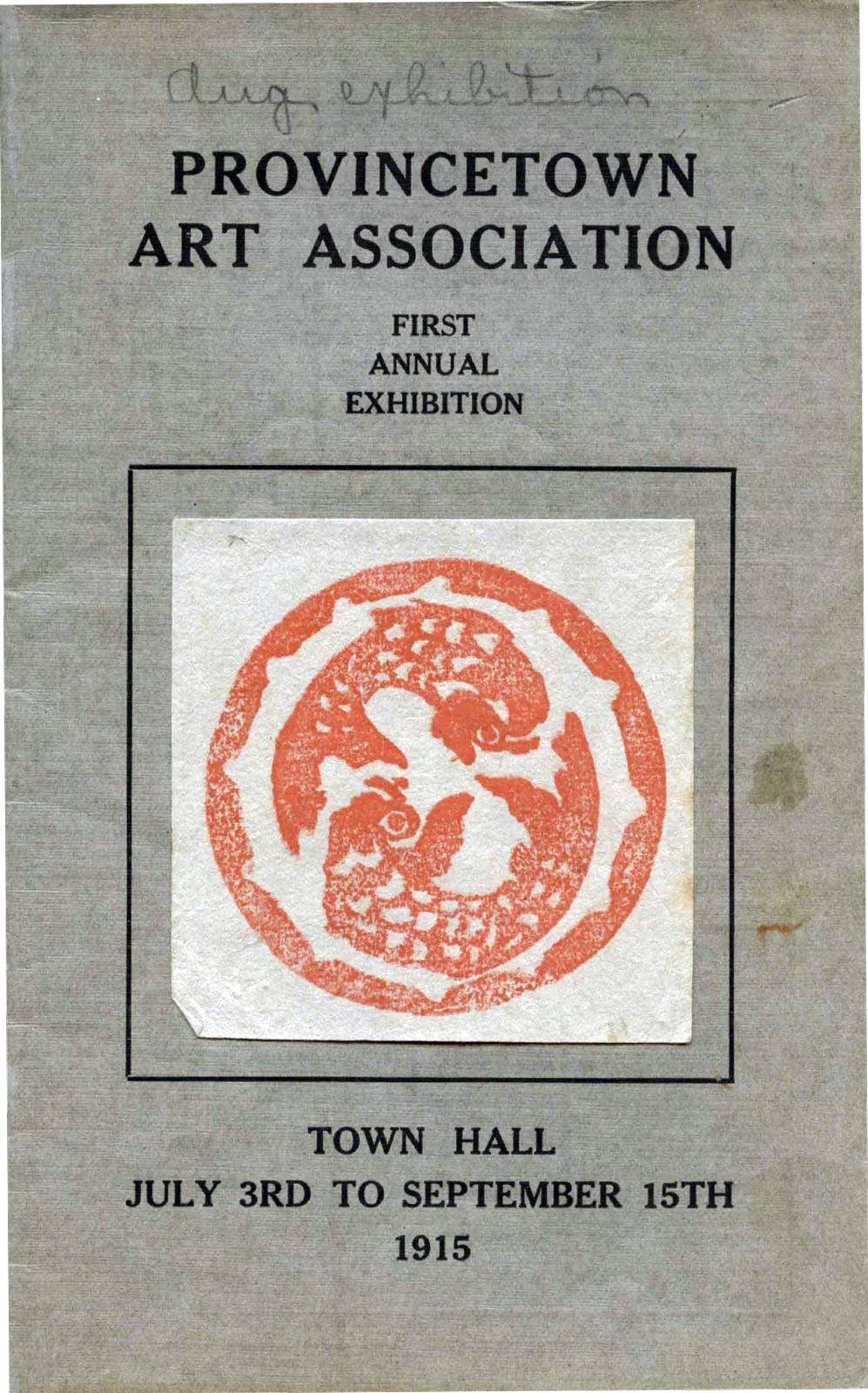
Provincetown Art Association’s first annual exhibit in 1915.
A Flourishing LGBTQ+ Community
Provincetown’s reputation as a bohemian art community was freshly inked when gay and lesbian travelers began making it a destination. They were drawn to the town’s sense of freedom and acceptance. Years later, when the AIDS epidemic began tearing at the fabric of the gay community around the country, Provincetown became a refuge, a place where patients could seek solace in an accepting community. Residents formed support networks and cared for the sick.
In 2004, Provincetown took on another identity: wedding destination. Massachusetts was the first state to legalize same-sex marriage, promising Provincetown’s caterers, venues, and florists job security for years to come. Even today, Provincetown is still one of the most popular places for couples in the LGBTQ+ community to marry—and to stay ever after.
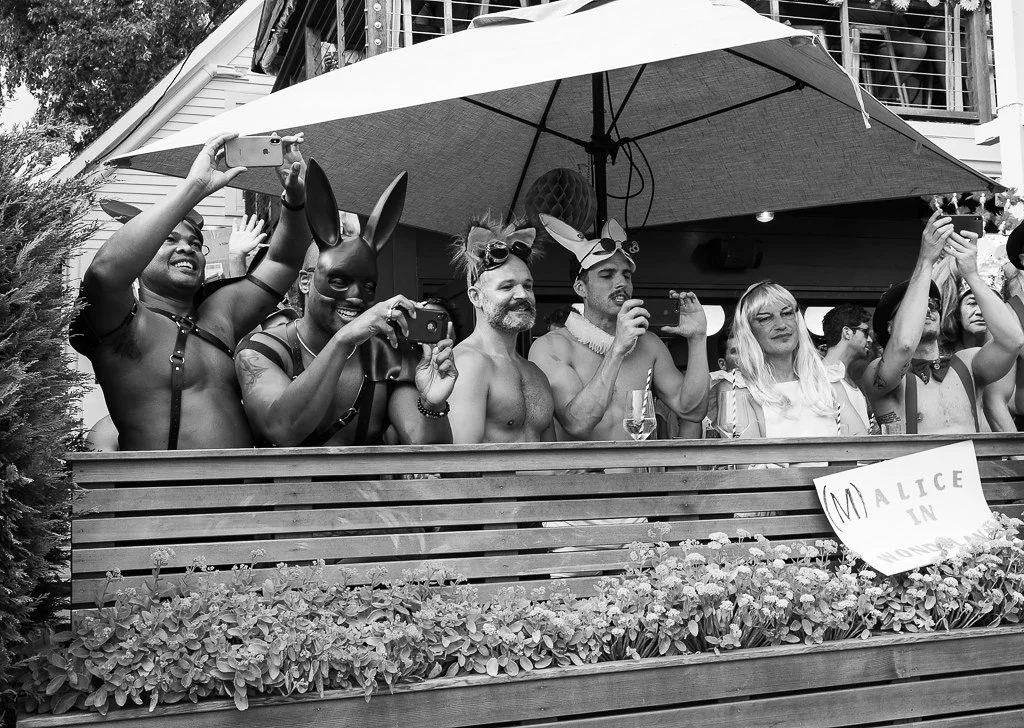
A photo-worthy crowd eagerly snapping pictures in Provincetown. Wouldn’t you love to know what they see? Photograph by Jeff Weinstein.
Provincetown Today
The communities that have defined Provincetown’s history and singular personality remain an important influence, from the Portuguese who continue to celebrate the Town’s past as a fishing center to the artists whose works are still shown in the area’s many galleries and museums. Today, Provincetown is also one of the biggest draws for the LGBTQ+ community. Thousands of people converge in Provincetown for over-the-top events with plenty of leather, drag, and Speedos, like the especially popular Bear Week and Provincetown Carnival. The Town is also known for Family Week, the largest gathering of families in the LGBTQ+ community in the world.
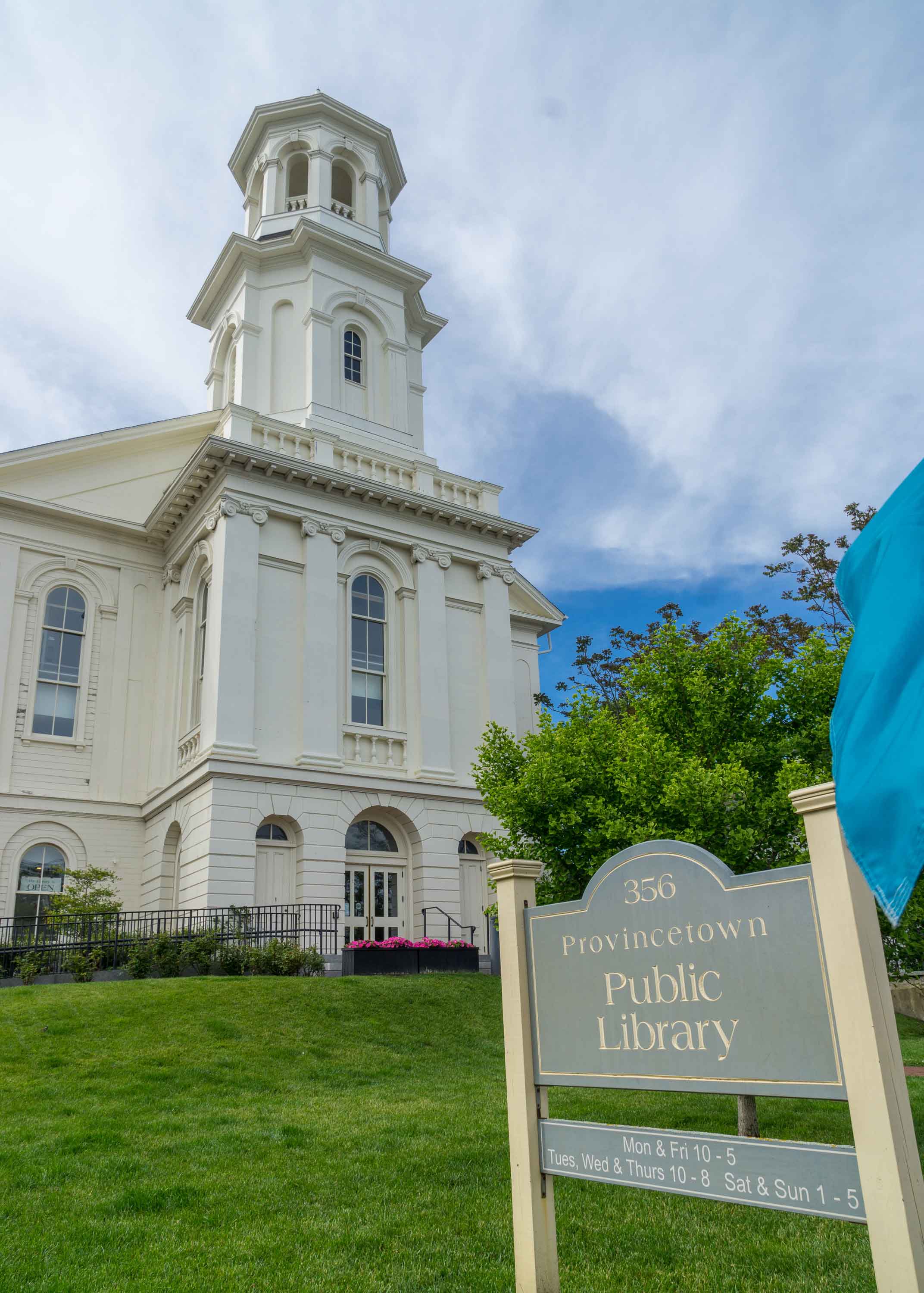
Provincetown’s public library, which was once a church.
Explore Provincetown in the Archives
The Provincetown History Project
The Provincetown History Project is a joint initiative from the Provincetown community and nonprofits. Their mission is to “preserve, protect and provide greater access to documents concerning the history of Provincetown through digitization.” The images below are a small selection from their incredible archive.
